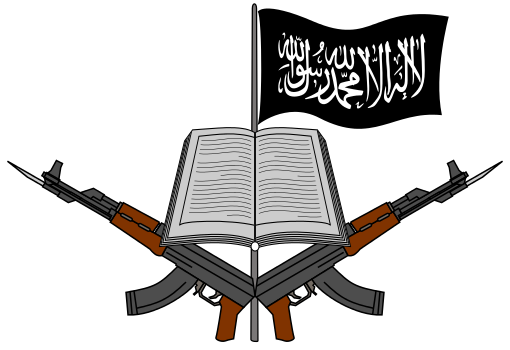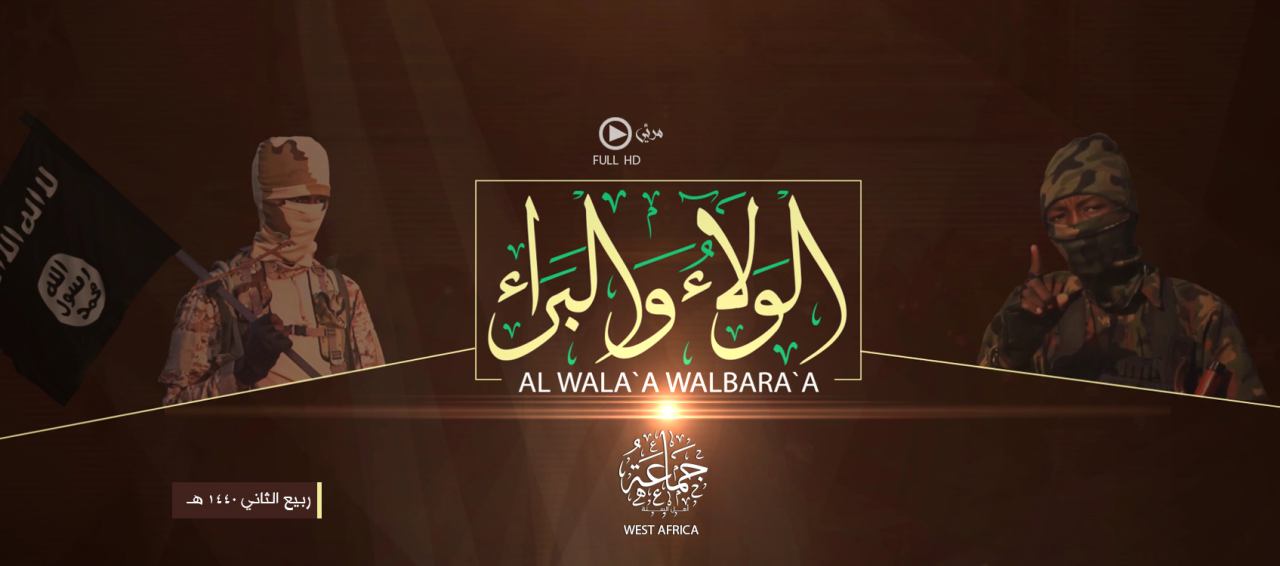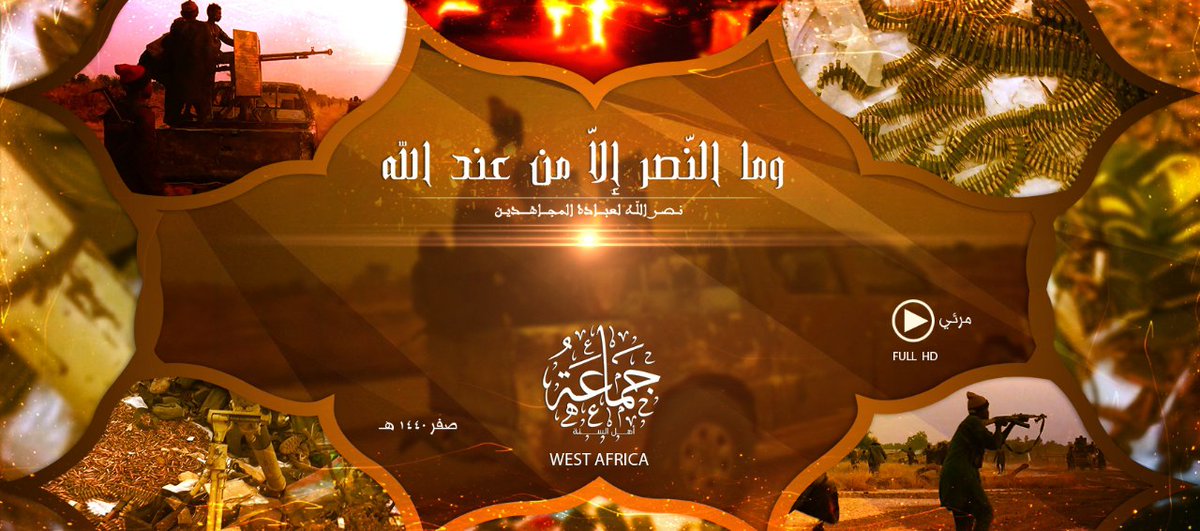As with all guest posts, the opinions expressed below are those of the guest author and they do not necessarily represent the views of this websites administrator and does not at all represent his employer at the Washington Institute for Near East Policy.
Jihadology.net aims to not only provide primary sources for researchers and occasional analysis of them, but also to allow other young and upcoming students as well as established academics or policy researchers to contribute original analysis on issues related to jihadism. If you would like to contribute a piece, please email your idea/post to azelin [at] jihadology [dot] net.
Click
here to see an archive of all guest posts.
—
“Who Is a Muslim?”: Mubi Mosque Attack, Masjid ad-Ḍirār, and the Historical Attempt at Defining a Muslim in the 19th, 20th and 21st Century Hausaland and Bornu
By Abdulbasit Kassim
Nigeria has once again made the global headlines and this time the place of interest is not Chibok, but the town of Mubi in Adamawa state where Abu Bakr Shekau’s faction of Boko Haram conducted a suicide attack in a mosque in the early hours of the morning prayer on November 21, 2017, killing up to 50 people. Mubi is home to the famous International cattle market “Kasuwa Shanu” and was previously renamed by Abu Bakr Shekau as “Madinat al-Islam” alongside Gwoza in Yobe state which was renamed as “Dar al-Hikmah” in his August 23, 2014, video titled “إعلان الخلافة الإسلامية” (Declaration of the Islamic caliphate). As usual with most commentaries after Boko Haram’s attacks, the larger question about what exactly spurred the incessant attacks on mosques, specifically by Shekau’s faction of Boko Haram, is disregarded in place of superficial analysis and specious judgments that obscure the underlying body of ideational thought that undergird the justification of attacks on Mosques or to use Shekau’s obnoxious parlance the attacks on “Masjid ad-Ḍirār,” a reference to the “Mosque of Dissent” whose destruction was ordered by the Prophet Muhammad after his return from the battle of Tabuk (see Qur`an 9:107-110). The little attention paid to the corpus of books and lectures Shekau delivered on this topic which contributed to the schism in his group with Abu Mus`ab al-Barnawi and Mamman Nur has confounded our understanding of this trend which is due to continue unabated.
Before the next mosque attack, this short piece is an attempt to answer the following questions: What are the underlying ideational thought that undergird Shekau’s justification for mosque attacks? How does Shekau’s understanding of this subject differ from the interpretation of his rivals in the Islamic State’s West African Province, Abu Mus`ab al-Barnawi and Mamman Nur? And finally, how does the theological debate of “who is a Muslim,” a debate whose historical precedent dates back to the 19th century in Hausaland and Bornu contribute to Shekau’s justification of mosque attacks. This short piece is set to provide a panoramic view of the landscape that must be properly understood for insightful judgment on the current trend on mosque attacks in Northeast Nigeria.
In their Arabic letter of protest against Shekau’s leadership written in 2011 to the al-Qaeda in the Islamic Maghreb (AQIM) Shari`a advisor `Abdallah al-Shinqiti, the future leaders of Ansaru [Abu Muhammad al-Hausawi, Abu Ahmad al-Kishnawi, Khalid al-Barnawi, Abu al-Bara`a al-Nurini al-Akinawi, Abu `Ubayda al-Kanawi, Abu `Abdalla al-Imam, Abu Muslim al-Ibrahimi, Abu Khalid al-Yerawi, Abu Nusayba al-Bushawi, Abu Maryam al-Ya`qub, and Abu `Asim al-Hasani] raised the first objection against Shekau’s excessive use of takfīr against other Muslims. In the letter, they wrote: “al-Shekawi uses takfīr for all those who participate in elections disregarding the principles and rules of takfīr. He makes things worse by not stopping at this point, but adding to this the permissibility of bloodshed and confiscation of possessions as clearly explained at the beginning of this letter as if he was a graduate from the school of Antar al-Zouabri (the leader of the Algerian group, GIA).”
Shekau is not the first person to be accused of using excessive takfīr against other Muslims. The genealogy of the doctrine of takfīr in Hausaland and Bornu can be traced to Shaykh Jibril `Umar, one of the teachers of Shaykh `Uthmān Ibn Fūdī who was also the first to pledge allegiance to him before the Jihad in 1804. In his book “نصائح الأمة المحمدية لبيان الفرق الشيطانية التى ظهرت في بلادنا السودانية,” after praising his Shaykh and warning against having bad thoughts about him, Shaykh Ibn Fūdī went further to exculpate his teacher from the charges of being a Khawarij: “It may be that he had an explanation for this which we are unaware of because he was a great sea of knowledge. O Brethren! Do not think ill of this great Shaykh, I do not know if we would have been guided to the way of the Sunna and the quelling of evil practices had it not been started by this Shaykh. For it was him who began to destroy evil practices in this Sudan land of ours and it is for us to complete that works.”
Although Shaykh Ibn Fūdī respectfully declared that his teacher erred in his declaration of takfīr on Muslims who engaged in grave sins (kabā`ir) or indulge in local customs that do not contravene the dictates of Islam, he would later apply a more orthodox interpretation that limit takfīr to major polytheism (Shirk al-Akbar) to the Hausa rulers whom he accused of practicing syncretism and also on the Borno Muslim rulers whom he argued allied themselves with the Hausa rulers. In his book “نجم الإخوان يهتدون به بإذن الله في أمور الزمان,” Shaykh Ibn Fūdī stated the three reasons for fighting the ruler of Kanem Borno and his followers: 1. their partial acceptance of Islam; 2. their hostility towards those who embrace Islam; and 3. their support and assistance to infidels (Hausa rulers) fighting against the Muslims: “The reason we considered the ruler of Bornu and his follower as unbelievers is because of their partial acceptance of Islam. There is no doubt that these people are overtly infidels. But with regards to those who embraced Islam among them, we still declared them to be infidels and this is similar to what al-Maghilī said to Sonni `Ali and his followers in his books `Ajwibat al-Maghilī `an asilat al-Amin al-Hajj Muhammad Askiya’ and Miṣbahu al-arwāh fī usūl al falāh’.”
Takfīr does not only excommunicate a Muslim from Islam, it also makes permissible the shedding of the blood of a Muslim accused of unbelief even before the killing of an original infidel (Kafir al-asl). For a detailed discussion of the concept of Takfīr and how it applies to the Jihadis read Nelly Lahoud’s book “The Jihadis Path to Self-Destruction”. Most of the books of Shaykh Ibn Fūdī where the discourses of takfīr were discussed are frequently cited in the books authored by Shekau to justify his declaration of takfīr on present-day Nigerian leaders ruling by the secular constitution and also on Muslims who support democracy and “man-made legislation.” To be fair and objective, even though the historical periods are different, the charges leveled against the Hausa rulers and the present-day Nigerian rulers are analogous, the charges of unbelief (Kufr) for ruling by other than the Shari`a. But even with his expansive list of what constitutes major polytheism including voting in elections and condoning democracy, Shekau did not stop at the declaration of takfīr alone, he further make permissible attacks on those who flee from his caliphate for the Nigerian state, which he described as “Dar al-Kufr” (most attacks on IDP camps are carried out by Shekau’s faction) and he also legalized attacks on mosques attended by those whom he declared as infidels under the guise of “Masjid ad-Ḍirār” i.e. in his words, the mosques were not built for the purpose of piety but for the purpose of combining the worship of God with the polytheism of calling for the support of democracy, secular constitution and man-made legislation all of which according to him constitute unbelief (Kufr).
Before explaining how Shekau arrived at his reasoning, it is important to explore the second epoch of contestation over the doctrine of takfīr which took place in the post-colonial period mainly between the Izalas and the Sufis of the Tijaniyya order. In his book “العقيدة الصحيحة بموافقة الشريعة”, Shaykh Abubakar Gumi declared a subtle takfīr on the Sufi leaders whom he compared to the Jews and Christians who knew the truth of Islam but refused to follow it. Shaykh Gumi went further to declare that the use of Ṣalāt al-Fātiḥ excommunicates the Sufis from Islam. In his response to the polemic of Shaykh Gumi and his critic from the Tijaniyya order, Ibrahim b. Sidi Muhammad b. Muhammad Salma who accused him of secretly supporting the Izalas, Shaykh Ibrahim Saleh wrote the two books “التكفير اخطر بدعة تهدد الوحدة بين المسلمين في نيجيريا” and “المغير على شبهات أهل الأهواء وأكاذيب المنكر على كتاب التكفير.” In the first book, Shaykh Saleh wrote a rejoinder to Shaykh Gumi’s subtle takfīr on the Sufi leaders specifically his notion that members of the Tijanniya order revere Ṣalāt al-Fātiḥ more than the Qur`an which he countered by emphasizing that Shaykh Ahmad Tijani never sanction such comparison. The second book was written in defense of Sufi beliefs and a re-examination of some doctrines of the Tijanniya order. At the second epoch, the takfīr debate was mainly restricted to devotional acts of worship and there was little or no connection of the debate to the issue of politics and governance like the time of Ibn Fūdī. This restriction will radically change in the third epoch.
The takfīr debate was furthered in the third epoch by new actors, the Saudi returnees who furthered the arguments of the Izala clerics but with a more refined Saudi-influenced theology and the firebrand students who were mostly the students of the Saudi returnees and who refused to abide by the limitation set forth by the Saudi returnees. According to the firebrand students whose leading figure was Muhammad Yusuf, the takfīr debate should not be restricted only to the polemics against the Sufi clerics but it should also be extended to the discourse of politics and governance like the period of Ibn Fūdī. In his Markaz Ibn Taymiyya, Muhammad Yusuf and his followers pitched their discourse of takfīr on the political rulers who govern by qawānīn wad`iyyah (man-made laws) and he argued that their Kufr is not different from the Kufr of the Sufi leaders, therefore if the Salafi establishment can condemn the Sufi leaders as infidels, they must do the same for the political rulers. While often citing the book of Imam Sharastani titled “الملل والنحل,” Yusuf convincingly refuted the Kharijites appellation penned on his group. In his debate with Mallam Isa Ali Pantami on June 25, 2006, Yusuf laid out his understanding of takfīr:
“All the followers of Sunna have reached a consensus on the principle of declaring a Muslim as an infidel. Anything that constitutes unbelief, if an unbeliever does it; he is already an unbeliever, no query. He does not have to do it to become an unbeliever. But if a person is a practicing Muslim and he









